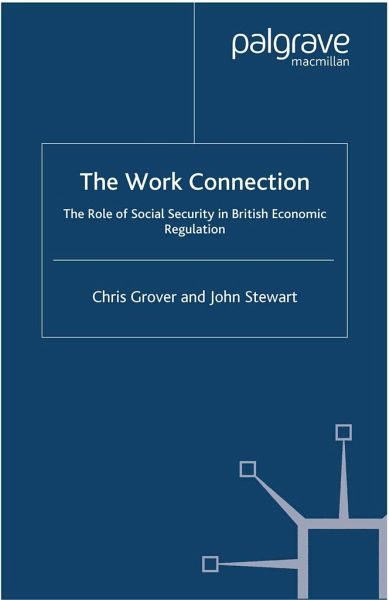
The Work Connection
The Role of Social Security in British Economic Regulation
Herausgegeben: Loparo, Kenneth A.

PAYBACK Punkte
38 °P sammeln!
The authors use regulation to explain the antecedents to current welfare developments in Britain. From discussion of the 'Speenhamland System', the struggle for Family Allowance and a National Minimum Wage, they show how first a Conservative government in the 1970s, and more recently 'New Labour', have used in-work benefits so that today they have become the preferred instrument of intervention in the labour market for setting wages. The authors discuss the ways in which these measures - the new deals for lone parents and young people and the working family tax credit - address issues of child...
The authors use regulation to explain the antecedents to current welfare developments in Britain. From discussion of the 'Speenhamland System', the struggle for Family Allowance and a National Minimum Wage, they show how first a Conservative government in the 1970s, and more recently 'New Labour', have used in-work benefits so that today they have become the preferred instrument of intervention in the labour market for setting wages. The authors discuss the ways in which these measures - the new deals for lone parents and young people and the working family tax credit - address issues of child poverty and the adequacy of incomes, and how far they are disciplining devices to encourage a new moral order, supportive of family life.














